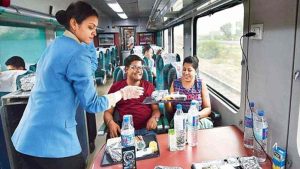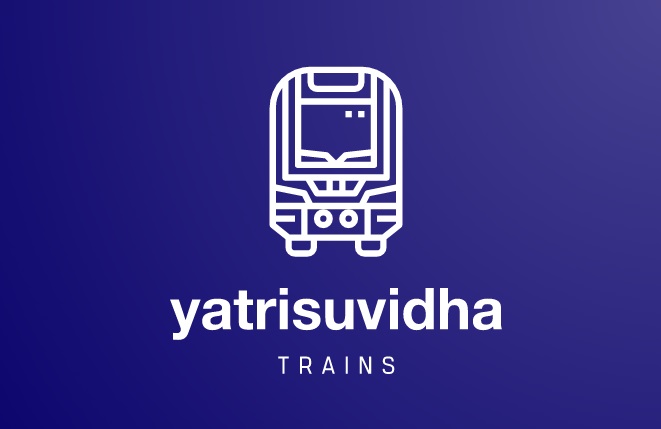
India’s rail network, one of the largest and busiest in the world, serves millions of passengers daily. Rail catering, an essential service on long-distance journeys, plays a crucial role in enhancing the travel experience. It is an integral part of Indian Railways’ services, catering to a wide array of tastes, preferences, and dietary requirements.
the various aspects of rail catering in Indian trains, including food offerings, pricing, quality, and the regulatory framework surrounding it.
- History of Rail Catering in India
Rail catering in India dates back to the British colonial era. The Indian Railway Catering and Tourism Corporation (IRCTC), established in 1999, revolutionized rail catering by taking over the responsibility of providing food on trains and at stations. Before IRCTC, catering services were outsourced to various contractors. Since its inception, IRCTC has made significant strides in improving food quality, hygiene, and the overall passenger experience.
- Types of Catering Services on Indian Trains
Rail catering services on Indian trains can be broadly classified into two categories: Onboard Catering and Station Catering.
2.1 Onboard Catering
Onboard catering refers to the food services provided to passengers while they are on the train. These services can vary depending on the class of travel and the type of train.
Shatabdi Express & Rajdhani Express: These premium trains offer high-quality meals as part of the fare. Passengers in these trains enjoy multi-course meals, often served in both vegetarian and non-vegetarian options. Rajdhani Express, in particular, offers an extensive meal service, including breakfast, lunch, and dinner, with a variety of regional dishes.
Vande Bharat Express: The newly introduced Vande Bharat trains provide high-quality meals to passengers in executive and chair car classes. The meals are often pre-packed, ensuring hygiene and freshness.
Duronto Express: Similar to the Rajdhani and Shatabdi, Duronto Express trains offer high-quality meals with the added convenience of having food available at scheduled intervals during long journeys.
Other Trains: In trains like the Jan Shatabdi and Garib Rath, food services are available for an extra charge, and the quality may vary. The meals typically consist of basic options like bread, butter, fruits, and packaged snacks.
2.2 Station Catering
Station catering refers to food services provided at railway stations, such as food stalls, kiosks, and large food courts. Stations like New Delhi, Mumbai, Howrah, and Chennai feature extensive food offerings that range from local snacks to full meals. Many stations now feature food courts operated by IRCTC or other catering firms, offering hygienic and diverse meal options.
- Food Options and Diversity
One of the highlights of rail catering in India is its variety. The diversity of India’s culinary culture is reflected in the food options available on trains and at stations.
3.1 Regional Cuisines
Indian trains cater to a broad spectrum of regional tastes. Passengers can enjoy local delicacies like:
North India: Dishes like paneer butter masala, aloo paratha, chole bhature, and samosas are popular in trains passing through states like Uttar Pradesh, Punjab, and Delhi.
South India: Passengers traveling through the south can enjoy idli, dosa, sambhar, and curd rice.
West India: Gujrati thali, vada pav, pav bhaji, and bhakri are commonly found in trains heading toward or from Mumbai and Gujarat.
East India: In the eastern regions, rice, fish, and mustard-based gravies, along with Bengali sweets like rasgulla, are commonly available.
3.2 Special Diets
IRCTC ensures that passengers with dietary restrictions are well taken care of. Special dietary options like Jain food, diabetic meals, and low-fat options are available on certain trains. Passengers can pre-order these meals at the time of booking tickets or during the booking process via the IRCTC website or app.
- Food Quality and Hygiene Standards
Food safety and hygiene are major concerns for Indian Railways. Over the years, there have been numerous instances of passengers raising concerns over the quality of food served. In response, Indian Railways, through IRCTC, has taken several initiatives to improve food quality:
Centralized Kitchens: IRCTC operates a network of kitchens that are responsible for cooking and packaging food. These kitchens are designed to meet stringent hygiene standards and ensure the food is fresh.
Certification and Audits: IRCTC has implemented a robust system of food audits, including surprise inspections and regular checks to monitor the quality and hygiene of meals served. Third-party agencies are also involved in certifying these kitchens.
Train Monitoring: Trains serving premium services like Rajdhani and Shatabdi have dedicated food quality officers who ensure that meals meet the required standards.
Packaging and Delivery: Meals are usually served in disposable, microwaveable containers to ensure food remains fresh during travel. In premium trains, meals are often delivered in ceramic or stainless steel containers.
Despite these efforts, occasional complaints regarding food quality, especially in lower-tier trains, persist. However, the overall trend has been toward a noticeable improvement in food hygiene and customer satisfaction in recent years.
- Pricing of Train Meals
The pricing of meals in Indian trains varies widely depending on the type of train, class of travel, and meal type. Premium trains like Rajdhani Express and Shatabdi Express include meals as part of the ticket fare. The cost of these meals is included in the overall fare, which typically ranges from INR 500 to INR 2,500 depending on the class and journey length.
For other trains, meal costs are extra, and prices can vary. A basic meal like a vegetarian or non-vegetarian thali can cost anywhere from INR 100 to INR 300, depending on the train and route. Snacks, beverages, and packaged foods are also available for purchase on trains and at stations, with prices ranging from INR 20 for simple snacks to INR 150 for a cup of coffee or tea in premium classes.
- Booking and Ordering Food
With the advent of technology, ordering food on Indian trains has become easier. Passengers can order food via the IRCTC e-catering service. This service allows travelers to pre-order meals from a wide range of local vendors, which are then delivered to their seats at scheduled intervals. Passengers can also order food through popular third-party apps like Zoop and Railrestro, which partner with IRCTC for catering services.
For trains without e-catering, food is served on a scheduled basis by the train staff, with options varying by train type.
- Challenges and Future Prospects
Despite the advancements in rail catering, several challenges remain:
Consistency in Quality: The quality of food can vary significantly between trains and routes. While premium trains tend to maintain higher standards, food quality on lower-tier trains sometimes falls short of expectations.
Hygiene Concerns: Although significant improvements have been made in ensuring food hygiene, cleanliness in food serving areas and on-train kitchens still faces criticism.
Pricing Discrepancies: While premium trains include meals in the ticket fare, the pricing for food in lower-tier trains can feel inconsistent and inflated.
Technological Integration: While online ordering systems like e-catering have made significant strides, there is still scope to expand these services to more trains and ensure smooth delivery of food.
The future of rail catering in India lies in greater technological integration, improving food quality and hygiene, and offering passengers more flexibility in ordering meals. The use of local and fresh ingredients, along with sustainable practices like reducing plastic use, is expected to be a key area of focus.
Rail catering in Indian trains is an essential part of the travel experience, providing passengers with meals that range from basic snacks to elaborate, multi-course meals. While the service has undergone significant improvements in terms of quality and variety, there are still challenges related to consistency, hygiene, and pricing. With continuous reforms and technological advancements, rail catering in India is expected to evolve further, offering travelers a more enjoyable and comfortable journey.

Leave a Reply